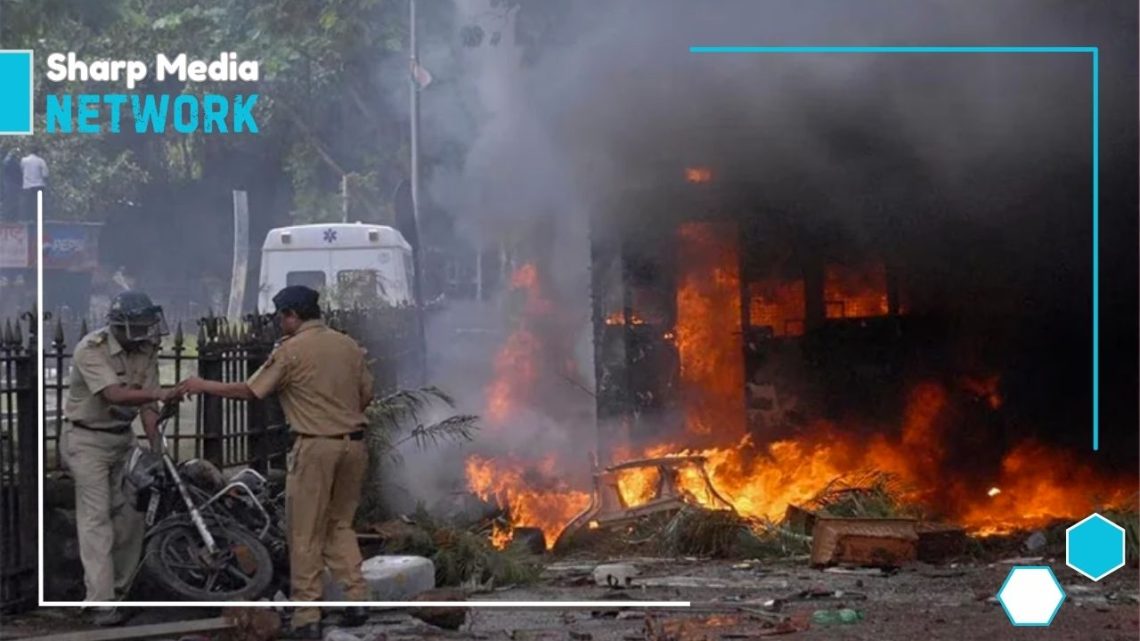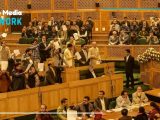
Shocking Surge in Communal Riots in India in 2024: HR Activists’ Report
January 27, 2025Communal violence escalated across India, the year 2024 has seen a troubling surge in riots, with a sharp 84% increase compared to the previous year, raising concerns over the nation’s social fabric and the role of political forces in fueling religious discord.
India witnessed a staggering rise in communal riots in 2024, with 59 incidents recorded, marking an 84% increase from 2023, which saw 32 such disturbances. This alarming trend was highlighted in a recent report titled Hegemony and Demolitions: The Tale of Communal Riots in India in 2024, authored by human rights activists Irfan Engineer, Neha Dabhade, and Mithila Raut. The report, based on data gathered from leading Mumbai-based newspapers, paints a grim picture of escalating religious violence across the country.
Maharashtra emerged as the state with the highest number of communal riots, accounting for 12 incidents. Uttar Pradesh and Bihar followed, each reporting seven incidents of communal unrest. These riots led to 13 fatalities, including 10 Muslims and 3 Hindus, underscoring the deadly toll of such violence. One of the most disturbing trends identified in the report was the exploitation of religious festivals and processions as triggers for riots. Out of the 59 riots recorded, 26 occurred during religious events, including major festivals like Ganesh celebrations, Saraswati Puja, and Bakri Eid.
Notably, four riots took place during the consecration of the Ram temple in Ayodhya in January 2024, highlighting the politically charged atmosphere surrounding such events. Other specific triggers included Saraswati Puja idol immersions (7 riots) and Ganesh festivals (4 riots), suggesting a pattern of ritual celebrations being manipulated to spark conflict. The study also linked six riots to contested places of worship, where Hindutva groups claimed mosques and dargahs were built over demolished Hindu temples.
The report sharply criticized Indian government’s handling of communal violence, particularly its disproportionate targeting of Muslims in the aftermath of riots. The authors pointed to the use of bulldozers to demolish Muslim-owned properties, a tactic that has gained notoriety in recent years. By September 2024, such demolitions had affected 19 properties in Maharashtra, a mosque in Delhi, a madrasa in Uttarakhand, and thousands of makeshift homes in Assam. This trend not only caused significant economic damage but also deepened the sense of injustice and insecurity within the Muslim community.
Additionally, the report highlighted the increasing tendency to implicate victims in criminal cases, further criminalizing Muslims and exacerbating their victimization. The study accused the state of fueling religious polarization while undermining efforts to foster communal harmony, questioning the official narrative of peaceful coexistence.
Another alarming statistic from the report was the rise in mob lynchings, with 13 incidents recorded in 2024, leading to 11 deaths—9 Muslims, 1 Hindu, and 1 Christian. Seven of these killings were linked to cow vigilantism, where vigilante groups targeted individuals accused of slaughtering cows, a practice deeply rooted in religious and political symbolism. Other lynchings were tied to accusations of interfaith relationships or assaults on Muslims based on their religious identity, reflecting a broader climate of intolerance and violence.
The authors of the report argue that the increasing number of communal riots contradicts claims made by the state about maintaining communal harmony in India. The report suggests that the rise in violence is not merely a series of isolated incidents but part of a deliberate strategy of using religious tensions for political mobilization. The study calls for accountability and decisive action from the state to address the root causes of communal violence and ensure justice for affected communities, particularly those victimized by the systemic targeting of Muslims.
The sharp increase in communal riots in India in 2024, coupled with the disturbing trends in mob lynchings and state-sanctioned violence, paints a troubling picture of the nation’s religious landscape. With political forces exploiting religious sentiments for gain and the state failing to take decisive action, the path to communal harmony and justice for victims seems increasingly difficult to navigate. The report urges a strong response to halt the cycle of violence and protect the rights of all communities in India.

